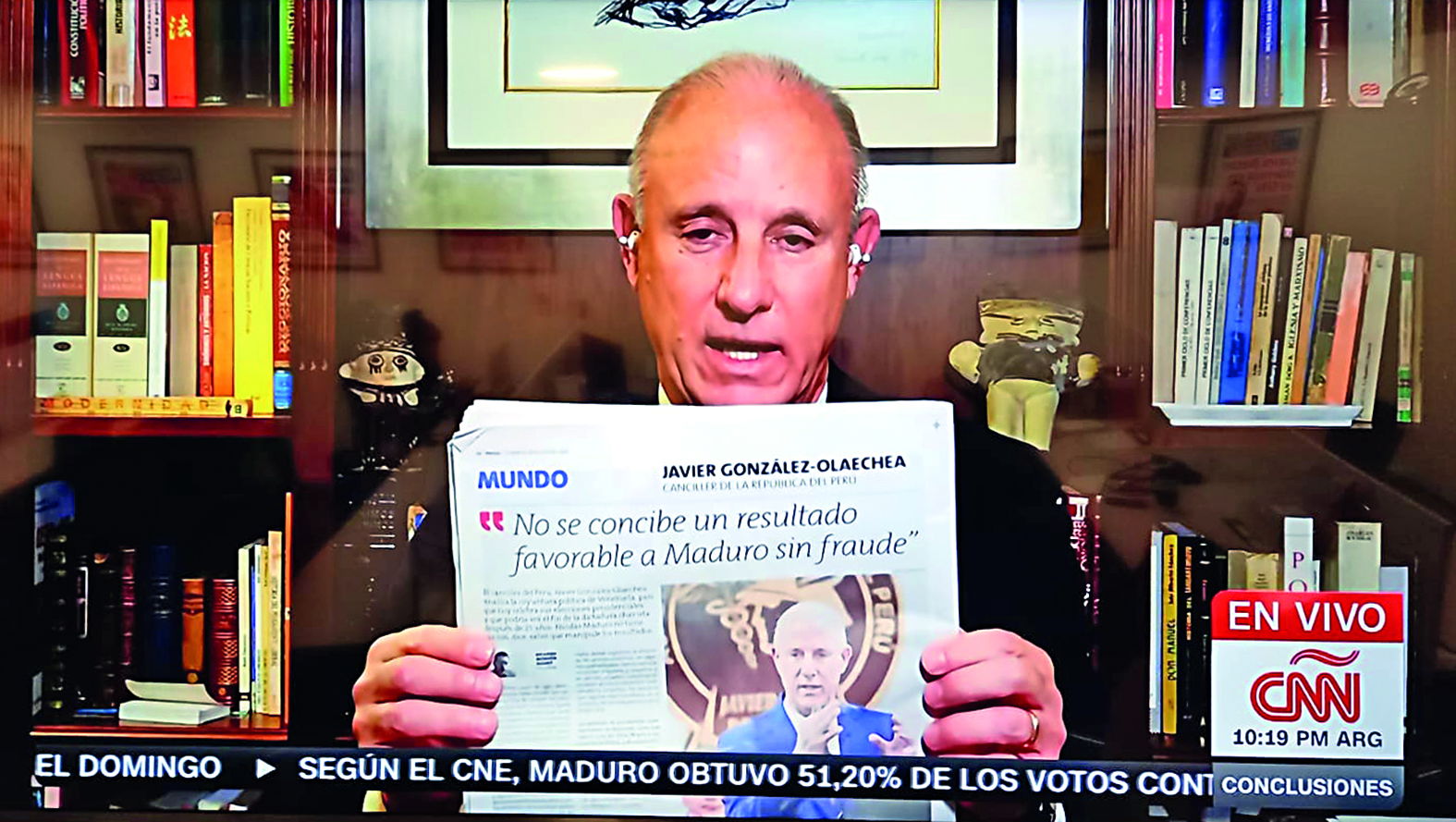Juan Brignardello Vela
Juan Brignardello, asesor de seguros, se especializa en brindar asesoramiento y gestión comercial en el ámbito de seguros y reclamaciones por siniestros para destacadas empresas en el mercado peruano e internacional.




In a recent interview with CNN en Español, Peruvian Chancellor Javier González-Olaechea reaffirmed his country's stance regarding the political crisis in Venezuela. In his statements, González-Olaechea asserted that Edmundo González is the legitimate president of Venezuela, in a clear challenge to Nicolás Maduro's proclamation as re-elected in elections that many critics have labeled fraudulent. This position of Peru is set against a backdrop of increasing diplomatic tension in the region and reflects a strong commitment to democracy and human rights. During the program hosted by journalist Fernando del Rincón, the chancellor also addressed the recent decision by the Peruvian government to expel Venezuelan diplomats accredited in the country. This measure, which gives them a 72-hour deadline to leave Peru, is seen as a response to what the Lima government considers serious and unjust decisions made by Maduro's regime. In this regard, González-Olaechea made it clear that this is not a decision taken lightly, but rather the result of deep concern for the situation in Venezuela. The Venezuelan elections have been the subject of controversy and allegations of fraud since their inception. According to González-Olaechea, the process was marked by evident irregularities. "From the first day, it was clear that the voting would be fraudulent," he stated, referring to how the Venezuelan electoral body announced the results. In his view, the sudden announcement of Maduro's victory was designed to surprise the public, which calls into question the legitimacy of the electoral process. The Peruvian chancellor also addressed the political repression that has accompanied the elections. "At 11 in the morning, without presenting any evidence, they proclaimed Maduro as head of government," he said, adding that, in addition, a persecution against political opponents was initiated, including the prominent figure of María Corina Machado. This situation has generated greater international concern regarding the respect for human rights and political freedoms in Venezuela. González-Olaechea's message is clear: the government of Peru does not recognize Maduro as president. "We do not recognize Maduro's government since we spoke out about the fraud," he stated, emphasizing that Maduro's continued hold on power is unsustainable. In his opinion, relinquishing power would be equivalent to "surrendering to justice," which would imply facing the consequences of his actions, further feeding the idea that Maduro will cling to power at all costs. The situation in Venezuela has prompted a collective response from several countries in the region. González-Olaechea highlighted that many foreign ministries are in constant coordination, which is essential to maintain a united front in defense of democracy. This reflects the widespread concern about the crisis in Venezuela, which extends beyond the country's borders. Furthermore, the Peruvian chancellor mentioned that not only Latin American nations are raising their voices. International organizations have also spoken out against Maduro's regime, indicating that the international community is increasingly alert to the situation in Venezuela. This international support can play a crucial role in the search for a peaceful and democratic solution to the crisis. Peru's stance in this context stands as a beacon for other countries facing similar decisions. The defense of democracy and human rights must be a collective effort, and the recent actions of the Peruvian government in the Venezuelan case are an example of how a nation can position itself against oppression. The international community has the responsibility to remain vigilant and committed to the defense of democratic principles. Peru's voice, through its chancellor, is an invitation to other countries to reflect on the role they should play in the Venezuelan crisis and in the protection of democracy in the region. In conclusion, Chancellor González-Olaechea's statements not only mark a firm stance from the Peruvian government but also invite broader reflection on the state of democracy in Latin America. The situation in Venezuela continues to be a matter of great relevance that requires attention and coordinated action from the international community to ensure that the voice of the Venezuelan people is heard and respected.
Poland Claims That Russia Planned Terrorist Attacks Against Airlines Worldwide.

Lavrov Criticizes The U.S. For Inciting Attacks On EU Energy And TurkStream.

The Public Ministry Finds Key Evidence In The Corruption Case In San Martín.




